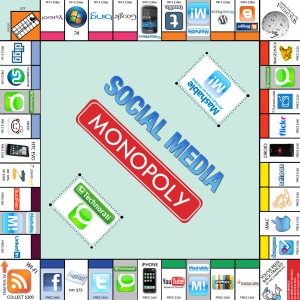 We recently had a discussion in class of the advantages and disadvantages of various different media: Newspapers – Radio – Television – Internet. We decided we needed to compare & contrast – to think about what they have in common and about what makes them unique. Here are some of the ideas we came up with – the list is in no way exhaustive and of course is open to dispute!!!
We recently had a discussion in class of the advantages and disadvantages of various different media: Newspapers – Radio – Television – Internet. We decided we needed to compare & contrast – to think about what they have in common and about what makes them unique. Here are some of the ideas we came up with – the list is in no way exhaustive and of course is open to dispute!!!
ALL of these media:
- convey information
- deal with significant news stories
- try to engage their target audience
- include advertisements
- entertain / shock / provoke / discuss / challenge
- may have a hidden bias – may favour a political viewpoint or a religious or cultural set of beliefs so we have to ask ourselves if the writer/broadcaster/presenter has an agenda (something they want to convince us of or achieve).
Differences between them – some ideas:
Newspapers:
- Is the target audience generally a more traditional, older audience? Lots of people now prefer to get their news online.
- The news they report on will be at least twelve hours old. This makes them less ‘cutting edge’, less up-to-date BUT the advantage is they have checked their sources, done more research and taken time to carefully consider their response.
- Are newspapers more likely to get to the real truth? to offer a more balanced view of events AND to be reliable as a source of information? For a lot of people, this is why newspapers are still relevant and important.
- Interestingly, almost all newspapers are now available online which allows them to combine quality journalism with the public demand for easily accessible news. They can also keep their content more up to date and deal with breaking news online – but not all traditional newspapers do this.
RADIO:
Advantages:
- breaking news delivered.
- Listen on the go – multi-task
- Add your comments/opinions via text, email or by ringing in (interactive)
- Competitions
- Add sound bytes (snippets from interviews)
- Prank calls (Is this a benefit or something to discourage?)
- Local radio keeps you up to date on a daily basis (death and funeral notices) whereas local newspapers are printed weekly
- Podcasts available if you miss a programme
Disadvantages:
- News bulletins don’t have as much information.
- Have to wait to hear upcoming items (this is a clever way to keep us listening!)
- May have reception problems (but if you have a good internet connection or an internet radio you can now stream radio stations live from all over the world)
- Depends who the DJ is what view of events you are given (do they have a particular viewpoint or agenda?).
- DJ may not be able to say what they really think (eg. Ray D’arcy recently got in trouble for cursing the Catholic Church on his morning show)
TV:
Advantages:
- Powerful – visual medium (a picture is worth a thousand words)
- Breaking news & variety of news channels/programmes – “kids” news on RTE 2, news at 5.30 (TV3), 6 (RTE 1), 9 and 11, rolling news
- Programmes for every taste/age/hobby – comedy, drama, music, (true) crime, movies, kids, sport, documentaries, religion, current affairs…
- Advertising is more effective on TV (???)
- Educational – documentaries, nature programmes etc…
- Influences our behaviour – positive role models and values.
Disadvantages:
- Influences our behaviour negatively – violence, attitudes towards drugs, sex, violence, crime etc…
- Obesity – most TV is passive and involves sitting on the couch.
- Encourages you not to think for yourself.
- Can negatively effect your attention span.
Internet
Advantages:
- Interactive – can post comments, ask questions.
- Informative – all of human knowledge is available to all people.
- Up-to-date and instant (available anywhere, anytime if you have a reliable connection.).
- Cheap way of keeping in contact (skype) with loved ones abroad.
- Can improve literacy and creativity.
- Online shopping convenient, cheaper.
- Access to people, cultures and events worldwide.
Disadvantages:
- Addictive – possibility of spending too much time online.
- Anti-social – despite the presence of ‘social media’, these sites can make us less likely to go out and socialise in the real world and lack of practice can make us more awkward when we do.
- Can be dangerous (strangers, trolls, stalkers)
- Sources might not be reliable.
- Anonymous
- Connection poor in rural areas.




